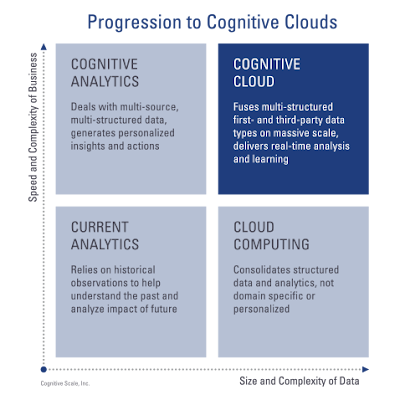Twitter Feed
How Cloud Brokerage Enables a Practical Path to Cloud IT
Join us on Wed, Apr 17, 2013 from 11:00 AM – 12:00 PM EDT to explore how to use cloud brokerage to move efficiently and securely to the cloud. More…
NJVC Cloudcuity Management Portal to Provide Secure Cloud Brokerage Services to NCOIC for NGA
CHANTILLY, Va., March 28, 2013 — NJVC®will lead efforts to provide secure cloud brokerage services to the Network Centric Operations Industry Consortiumusing its first-to-market Cloudcuity™ Management Portal during a series…
CloudCheckr : Amazon Complexity Challenges Many Users
A recently released infographic from CloudCheckr (https://cloudcheckr.com/) sheds quite a bit of light on the importance of expert advice when an enterprise decides to deploy to the cloud. When…
NJVC Announces Winner of Cloudcuity AppDeployer Contest Pilot at George Mason University
CHANTILLY, Va., Feb. 25, 2013—NJVC, an information technology solutions provider headquartered in northern Virginia, is pleased to announce the winner of the George Mason University (GMU) Student PaaS Developer Contest.…
Bahrain International eGovernment Forum 2013
I am honored to announce that I will be a speaker at the Bahrain International eGovernment Forum, April 8-10, 2013, being held at the Ritz-Carlton Bahrain Hotel and Spa, in…
Why the cloud will shake markets.
“Recently, I predicted that in 2013, cloud computing will provide the biggest disruption information technology has experienced in 25 years. These impacts extend to the $128 billion data center industry,…
Top 10 Transformational Impacts of the Cloud in 2013
CHANTILLY, Va., Dec. 20, 2012 — NJVC®, an information technology solutions provider headquartered in northern Virginia and supplier of Cloudcuity™ AppDeployer, and Virtual Global, a provider of cloud-enabled enterprise IT…
GovTech Innovator: Kevin Jackson
Today I am honored to be named a GovTech Innovator by Government Technology. My personal thanks goes out to Hilton Collins for letting me Hangout with him on Google+. Govtech.com…
How Will Technology Impact Your Business in 2020?
by Dennis Brouwer (Repost from ThinkGig. Thanks for letting me contribute to your ebook!! – Kevin Jackson ) Human-like technology. The potential downfall of the data center. Hyper-personalization of…
The Government Cloud on KCUR-FM Central Standard with Jabulani Leffall
A big THANK YOU goes out today to KCUR-FM Central Standard host Jabulani Leffall, producer Matthew Long-Middleton,and associate producer Danie Alexander for having me as a guest on this morning’s show!…
According to the IBM Institute for Business Value the market will see a rapid adoption of initial cognitive systems. The most likely candidates have moved beyond descriptive and diagnostic, predictive and routine industry-specific capabilities. 70 percent of survey respondents are currently using advanced programmatic analytics in three or more departments. In fact, the widespread adoption of cognitive systems and artificial intelligence (AI) across various industries is expected to drive worldwide revenues from nearly US$8.0 billion in 2016 to more than US$47 billion in 2020.
The analyst firm IDC predictsthat the banking, retail, healthcare and discrete manufacturing industries will generate more than 50% of all worldwide cognitive/ AI revenues in 2016. Banking and retail will each deliver nearly US$1.5 billion, while healthcare and discrete manufacturing will deliver the greatest revenue growth over the 2016-2020 forecast period, with CAGRs of 69.3% and 61.4%, respectively. Education and process manufacturing will also experience significant growth over the forecast period.
th’s ability to replicate intuitive experiences provides a number of opportunities within sentiment analysis. With its ability to understand scenes and context, it can decipher how people are feeling based off facial expressions or voice stress levels.
- Need robust and simplified data classification processes in order to more easily deliver industry and business model specific value;
- Require the implementation of information technology security controls that are driven by data value and role based access control paradigms; and
- Leverage software applications that should be developed using ISO 27034 which is a multi-part standard on specifying, designing/selecting and implementing information security controls through a set of processes integrated throughout an organization’s Systems Development Life Cycle/s (SDLC).
( Thank you. If you enjoyed this article, get free updates by email or RSS – © Copyright Kevin L. Jackson 2016)
Cloud Computing
- CPUcoin Expands CPU/GPU Power Sharing with Cudo Ventures Enterprise Network Partnership
- CPUcoin Expands CPU/GPU Power Sharing with Cudo Ventures Enterprise Network Partnership
- Route1 Announces Q2 2019 Financial Results
- CPUcoin Expands CPU/GPU Power Sharing with Cudo Ventures Enterprise Network Partnership
- ChannelAdvisor to Present at the D.A. Davidson 18th Annual Technology Conference
Cybersecurity
- Route1 Announces Q2 2019 Financial Results
- FIRST US BANCSHARES, INC. DECLARES CASH DIVIDEND
- Business Continuity Management Planning Solution Market is Expected to Grow ~ US$ 1.6 Bn by the end of 2029 - PMR
- Atos delivers Quantum-Learning-as-a-Service to Xofia to enable artificial intelligence solutions
- New Ares IoT Botnet discovered on Android OS based Set-Top Boxes



